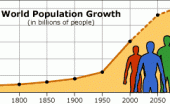Re Ian Bremmer 'Could third-party candidates upend the 2024 US election?' 3 April The current political movement in the USA…
Rio+20 World Environment News Summation
Written by Diana Thebaud Nicholson // June 25, 2012 // Sustainable Development // Comments Off on Rio+20 World Environment News Summation
(SciDev.net) Science at Rio+20
Finding cause for hope in Rio+20 disappointment
The disappointment arising from the lack of consensus at the Rio+20 conference on sustainable development is giving way to optimism among some observers, including Mary Robinson, former human rights chief at the United Nations, who writes that “the lack of political leadership was countered by the incredible vitality, determination and commitment of civil society.” The shortcomings of the summit could point to the emergence of a new notion of “ecological citizenship,” says Ilan Safit, a professor at Pace University. CNN (6/26), The New York Times (tiered subscription model)/Dot Earth blog (6/25), United Press International (6/25)
Rio+20 participants leave thinking not just big, but differently
The lack of meaningful commitments at the Rio+20 summit by governments means that developing nations, grass-roots organizations and corporations must take the lead in making development more sustainable, observers say. “We saw in the myriad Rio+20-related announcements … that they were taking action themselves — irrespective of any United Nations document,” said Frances Beinecke, head of the Natural Resources Defense Council, and Trip Van Noppen, head of Earthjustice. “We can do this ourselves.” The New York Times (tiered subscription model) (6/23), The Christian Science Monitor (6/22), AlertNet (6/23), The New York Times (tiered subscription model)/IHT Rendezvous blog (6/24)
Rio+20 ends with weak text, emboldened observers
Authors: Paulo Prada and Valerie Volcovici
World Environment News/Planet Ark
Global leaders ended a U.N. development summit on Friday with what was widely considered a lackluster agreement, leaving many attendees convinced that individuals and companies, rather than governments, must lead efforts to improve the environment.
Nearly 100 heads of state and government gathered over the past three days in efforts to establish “sustainable development goals,” a U.N. drive built around economic growth, the environment and social inclusion. But a lack of consensus over those goals in Rio de Janeiro led to an agreement that even some signatory nations said lacked commitment, specifics and measurable targets.
A series of much-hyped global summits on environmental policy has now fallen short of expectations, going back at least to a 2009 U.N. meeting in Copenhagen that ended in near chaos. As a result, many ecologists, activists, and business leaders now believe that progress on environmental issues must be made locally with the private sector, and without the help of international accords.
“The greening of our economies will have to happen without the blessing of the world leaders,” said Lasse Gustavsson, executive director of the World Wildlife Fund.
U.S. Secretary of State Hillary Clinton, who arrived early on Friday for a quick announcement on U.S.-backed projects in Africa and a series of bilateral meetings with various world leaders, admitted as much. “Governments alone cannot solve all the problems we face,” she said, “from climate change to persistent poverty to chronic energy shortages.”
Most troubling for many critics of the summit is the fact that leaders arrived in Rio merely to sign a text that their diplomats had all but sealed beforehand. The text, dubbed “The Future We Want,” left little room for vision or audacity from presidents and prime ministers, critics argued.
“The world we want will not be delivered by leaders who lack courage to come here, sit at the table and negotiate themselves,” said Sharon Burrow, general secretary of the International Trade Union Confederation.
“They took no responsibility for imposing the action, the targets, the time lines.”
Some heads of state and government stayed away, given the global economic slowdown, worsening debt woes in Europe and continued violence in the Middle East. Notable absentees included U.S. President Barack Obama, German Chancellor Angela Merkel and British Prime Minister David Cameron, all of whom attended a gathering of the Group of 20 major economies earlier this week in Mexico.
GOALS DIFFERENT FROM AT ’92 SUMMIT
The summit, known as Rio+20, was never expected to generate the sort of landmark accords signed at the 1992 Earth Summit in Rio, which included a treaty on biodiversity and agreements that led to the creation of the Kyoto protocol on greenhouse emissions. Although this week’s meeting attracted more than 50,000 people, many were disappointed that the leaders made few specific commitments on issues ranging from energy to food security to oceans.
Throughout the three-day gathering and week-long negotiations beforehand, the streets of central Rio and surrounding the suburban conference hall that hosted the summit were filled with demonstrations by activists ranging from Indian tribes to environmentalists to anti-nuclear protesters.
The completion of a draft text even before the arrival of government heads gave the gathering itself a sense of finality from the start. Some delegates left on Thursday and by late Friday a handful of leaders were still delivering ceremonial addresses in a large, empty hall.
Instead of forging legally binding treaties, organizers say, the purpose of the summit was to initiate a process to define a new set of development principles.
But that process, like most global diplomacy, is rife with conflicting interests and tensions between rich countries and the developing world. “The storyline is different from 1992,” said Andre Correa do Lago, chief negotiator at the conference for Brazil, which led the final talks on the declaration.
“This summit recognizes more than the others that not one size fits all,” he added.
Many leaders used their time at the podium to note the markedly different needs they were struggling with, especially compared with the developed world. While Brazil, China and other big emerging nations spoke of their need to catch up with rich countries, others like Bolivia, Iran and Cuba unleashed traditional rants against capitalism and conventional definitions of growth.
ENVIRONMENTALISTS ANGERED
One point of contention is what many emerging nations say is a need for a global fund that could help them pursue development goals. Early talk of a $30 billion fund for that purpose as a possible outcome of the summit foundered well before leaders arrived. A French proposal to tax financial transactions for that purpose also failed.
Clinton, announcing a $20 million grant for clean energy projects in Africa, said a better mechanism was “partnerships among governments, private sector and civil society.”
Other countries, the World Bank and regional development banks also used the summit to showcase similar initiatives. U.N. Secretary-General Ban Ki-moon said on Thursday that private investors since last year had pledged over $50 billion to boost the use of renewable energy sources worldwide.
Many business leaders at the conference said they were eager to find ways to contribute further. Richard Branson, the British billionaire, said in an interview at the “World Green Summit,” one of many sideline events: “There’s very little in a document like what they’ve come up with to accomplish real goals. That leaves it to the rest of us to find ways to move forward.”
But some warned that private initiatives, while helpful, could not be responsible for the rulemaking and law enforcement necessary to ensure that wholesale changes take place.
“The private sector has an enormous and important role to play but not as a substitute to governments and international leadership,” said Malcolm Preston, who leads the sustainability and climate change practice at PriceWaterhouseCoopers.
Environmentalists were angry that leaders failed to make commitments on two key issues: measures to protect the high seas and defining a process to stop subsidizing fossil fuels.
Brazilian President Dilma Rousseff and other leaders said the outcome of the summit reflected what was possible after more than a year of discussions among the 193 government delegations that attended the summit. “From here we can only advance,” she said. “We’ve arrived where we are together. To advance further we have to build a consensus.”



